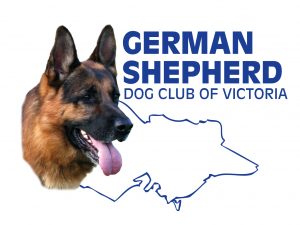Your Requirements
To train your dog at a branch of the GSDCV, you need to become a financial member of the Club. We have several different membership categories (single, family, pensioner). When you attend your local branch they wil prvoide you with the required information.
As a financial member you should read and understand the GSDCV Constitution and Regulations, which governs how our club operates.
You are responsible for your own dog and it’s behaviour. Please be mindful of other members and dogs, and always act with the safety of other members and dogs in mind.
Your Dog’s Requirements
What Vaccinations are required to attend GSDCV Branches?
Our veterinary recommendation (from Monash Vet Clinic) is that young pups be vaccinated at 6, 12, and 16 weeks of age. A follow up vaccination at 6-12 months is then required. Followed by annual or 3 yearly vaccinations, dependant on the vaccine used. Canine Cough (Kennel Cough) vaccinations must be done annually.
GSDCV training Branches are required to undertake an annual vaccination card check.
This will include confirmation of an annual or tri-annual annual vaccination with the 3 core vaccinations being covered: i.e. Distemper, Hepatitis and Parvovirus (C3). Confirmation of yearly Canine Cough vaccinations completed. This is included in an annual C5 vaccination.
GSDCV Vaccination Guidelines
All Members are required to provide proof of current C3 (annual or tri annual) plus annual Canine Cough vaccinations before being able to train on any GSDCV training grounds.
The GSDCV will not accept titre testing as proof of current vaccination. Vaccination checks will be completed on a yearly basis at all branches.
Dog Vaccinations
There are a number of serious infectious diseases that can be fatal to dogs, even with treatment. Fortunately, it is possible to protect against these diseases by having a planned vaccination schedule.
In dogs, the diseases that are routinely vaccinated against are:
Parvovirus: A highly contagious viral disease that causes vomiting and bloody diarrhoea. Prolonged intensive care is required for affected dogs. Unfortunately, parvovirus can be fatal.
Distemper: Signs may include eye and nasal discharge, coughing, vomiting and diarrhoea, progressing to brain involvement causing seizures. Permanent nervous system damage and death may result.
Infectious Canine Hepatitis: Symptoms may include vomiting, diarrhoea, abdominal pain and liver failure. Often fatal.
Canine Cough (CC): Also known as kennel cough, canine cough is primarily caused by two organisms, Bordatella bronchiseptica (a bacteria) and Canine Parainfluenza Virus. Many other viruses (for example Canine Adenovirus) and bacteria may also be involved. Canine cough is highly infectious and is often spread amongst dogs in close contact, for example at the park, dog shows and kennels. Symptoms include a harsh hacking cough. Severely affected dogs may have a fever, lethargy and reduced appetite.
Types of Vaccinations
C3 vaccination: Protects against Canine Distemper, Canine Infectious Hepatitis and Canine Parvovirus vaccination
Canine Cough vaccination: Protects against the components of Canine Cough (Bordetella bronchiseptica and Parainfluenza virus).
C5 vaccination: Canine Distemper, Canine Infectious Hepatitis, Canine Parvovirus and Canine Cough Vaccination. This is the minimum requirement for most boarding kennels.
Members are required to comply with the above in order to ensure the health of all dogs, including puppies attending training branches and GSDCV events

